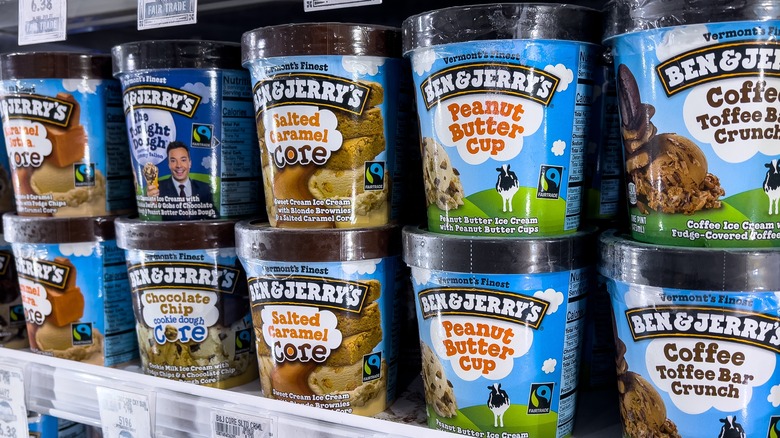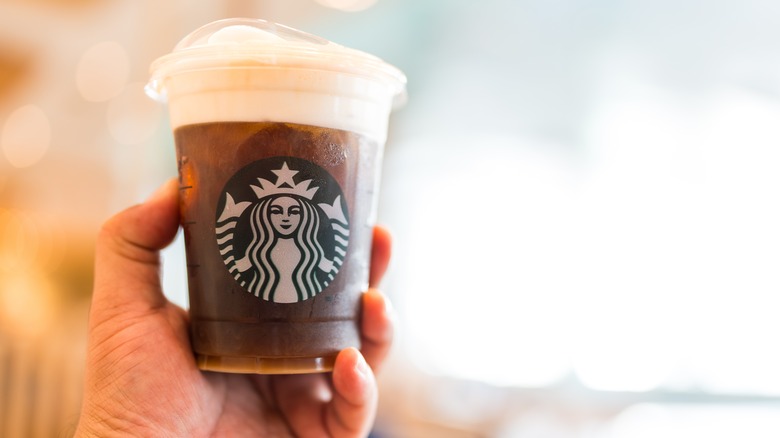Whatever Happened To Ben & Jerry's Fossil Fuel Ice Cream?
It can be heartbreaking when something you've grown fond of is removed from your life forever. For many, those pangs of sadness were felt in 2016 when Ben & Jerry's announced it would be discontinuing its beloved Fossil Fuel flavor. Sweet ice cream swirled with pieces of chocolate cookies, fudge dinosaurs, and even more moist fudge throughout — gone forever. But have you ever wondered why?
While the name referenced the prehistoric era of raptors and T-Rexes, the company feared it might suggest it favored the non-renewable energy source of fossil fuels. In a statement on its website, it explained: "We believe that fossil fuels, whether ice cream or the real thing, belong in the ground!"
This isn't the first time Ben & Jerry's has discontinued beloved flavors. The company has a "Flavor Graveyard" (a real place in Vermont), where various flavors have been laid to rest.
The announcement of Fossil Fuel's removal might initially seem like progress — a large company taking eco-friendly action, yay! But others might argue it's an example of greenwashing, a.k.a. a company deceiving its consumers about its environmental efforts. Ben & Jerry's original statement mentioned other countries moving toward clean energy, and included a petition to eliminate fossil fuels (which is no longer on its website), but little else. Sure, it had an ice cream truck at SXSW in 2023 calling out major gas companies, but the company was also sued in 2019 by the Organic Consumers Association for misleading customers about how green it really was.
Other companies accused of greenwashing
Ben & Jerry's is not the only company that has been accused of greenwashing. Per Impakter, McDonald's claims that its goal is to reduce greenhouse gas emissions by 36% by the year 2023, but some experts argue that might not be possible.
Likewise, Starbucks joined the greenwashing bandwagon in 2018 when it released a "straw-less lid" for its drinks — when in reality there was more plastic in this new lid than previously. Coca-Cola also made an eco-friendly statement back in 2020 promising to retrieve every bottle back by 2030, but was shortly thereafter threatened with a lawsuit from the Earth Island Institute for the false advertising.
Luckily, there is still hope out there, with places like The Real Dill, a pickle company based in Denver, becoming a 100% zero-waste company back in 2017. Similarly, Rootless, creators of seaweed bite snacks, strives to save the planet by capturing carbon dioxide. Additionally, to help stop the growing amount of food waste restaurants create every year, places like Costco sends its unsold produce to farms instead of throwing it out at the end of day.


